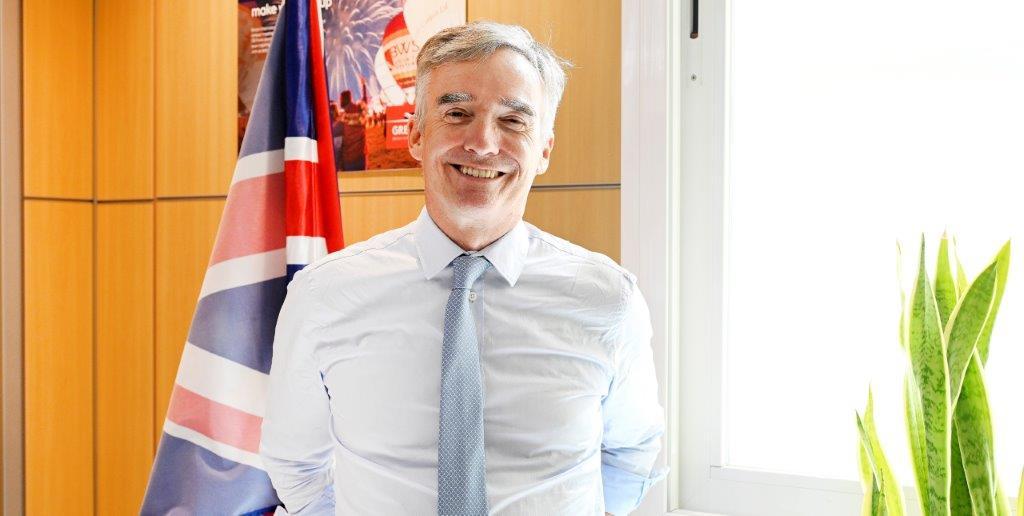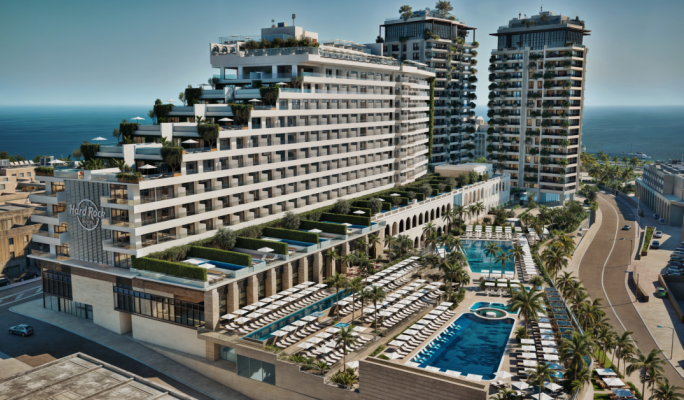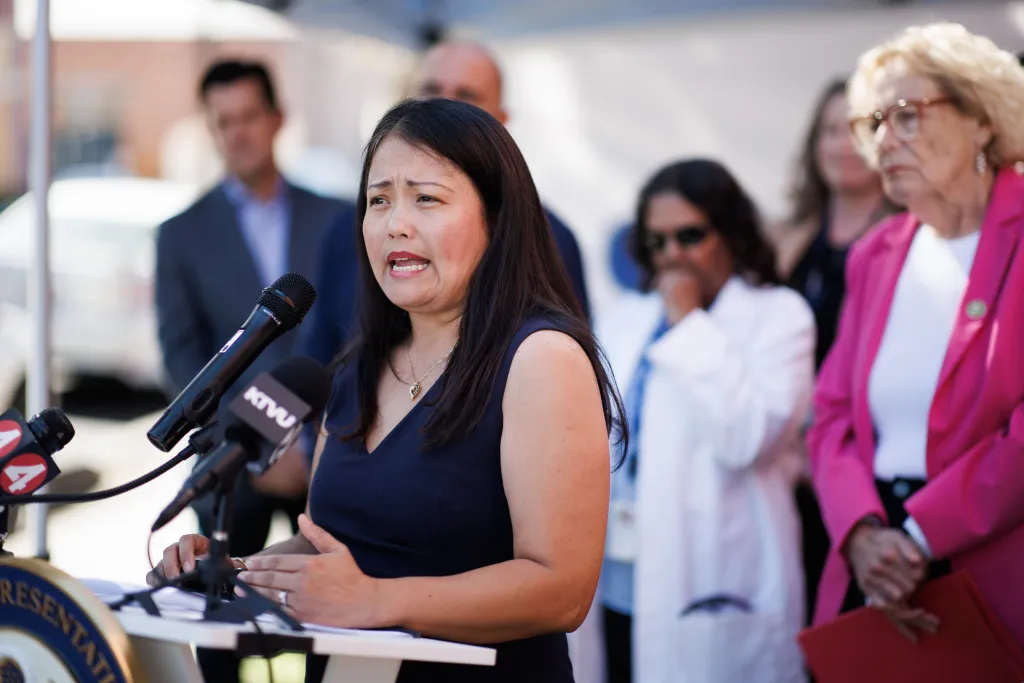Copyright majorcadailybulletin

During an official visit to Mallorca to meet the President of the Balearics, Marga Prohens, the British Ambassador to Spain, Sir Alex Ellis, sat down to give the Bulletin a wide-ranging exclusive interview during which he was very keen to stress the newly “reset” close working political relationship between the United Kingdom and Spain. He considered the forthcoming changes for Britons travelling to Spain and other Schengen region countries in the European Union, in particular the EES entry and exit scheme, which is already being tested in Madrid but will be rolled out at Palma airport on November 19 after Menorca on November 4. He also showed a great deal of interest in the British tourist industry in Mallorca. “The EES has started to be introduced in Spain but it will be rolled out over a period of six months. Madrid was the first airport to do it on October 12 and only for a limited number of passengers. So they are staggering it across Spain, Menorca is November 4 and Palma November 19; Ibiza has yet to set a date. I think that’s a good idea because we need to know how the world of this new technology is going to work. 18.4 million British tourists “It’s an EU Schengen system. We’ve been talking to the Spanish authorities about how it’s going because there is a very big interest on the Spanish side that it’s made to work properly. “The UK provided some 18.4 million visitors last year, so we’re talking to the various parts of the world which have a significant number of British visitors; the Balearics is one, the Canaries will be another. In fact, the Spanish have been ready to go for a while but it’s been delayed a couple of times. That’s not because of the Spanish, it’s been other countries which have not been ready. “Everyone is tightening up their border controls where they can across the world, including the UK. But everyone has an interest in that all border controls flow efficiently; I think it’s a very good decision to stagger it,” Sir Alex said. Advice for British travellers With regard to his advice for the British coming to Spain he was quite clear. “Have a good time. Allow for a little bit more time at border control because the first time you come you will have to register two bits of biometric information, fingerprints and a retina scan. But once you are registered on the system then it should be relatively simpler; that first time may take a little longer,” he said. “One of our main focuses here has been on British residents and if they have got their TIE (new ID card) because it’s very important that residents get their TIE. After Brexit the Spanish authorities said that your green certificate was ok, but the EU and the Schengen border code legislation bill require the TIE in order to demonstrate that you are resident. Quite a lot of people have got them already, but many still haven’t. “While there is no clear time frame with regard to the validity of the green certificate, I think there are different factors to take into account. “This is about how you cross the Schengen border and the law requires you to have a TIE as proof of resident. My advice to British residents is, if you have a TIE great, but if you don’t, make sure that you do by next April when the whole system should be fully functioning. If you haven’t got one yet, make sure you can provide a proof of residence like you are on the padron or that you have an appointment pending for the TIE card. Something you can show to the people who will be on border controls to establish your situation. 90-day rule “It’s about passing the borders by showing that you are resident, and with a TIE you will be exempt from some of the requirements, so it is going to make life much easier if you have one. That’s probably my main message to your readers and British expatriates across Spain,” he stressed. “I know the 90-day issue is also a concern for some Britons but that is an EU rule and I doubt very much that it will change. What is interesting is that even if you are a resident here in Spain and you’ve got your TIE and you’re going to another part of the Schengen area, you still have residential requirements. If you go to say Germany, you’re not supposed to stay more than 90 days - that’s up to the relevant country to check - but imagine you’re resident here, live in Mallorca, you go to Germany, you still have to respect the 90-day rule, residency rights in Spain or not. I see no evidence that the 90-day rule will be scrapped. “There was an EU reset in May when we had the first EU summit since the UK left the EU, but I don’t see the EU changing the 90-day rule. The focus has been more on easing the movement of goods,” Sir Alex said. “On freedom of movement the government has been very clear; I can’t see any major change on that either. What the reset is trying to do is improve the economic relationship between the two countries. “There are some areas where there is a negotiation going on, such as Erasmus, students studying abroad in the EU and vice versa and a youth mobility experience. The latter will be negotiated between the EU and the UK. The UK does have agreements governing young workers overseas with some countries, but the numbers are capped at small numbers; there will not be a return to the freedom of movement. There will be negotiations on certain areas such as student or youth mobility, but they will be specific rather than overall. So will we see a return of seasonal workers you ask? Highly unlikely,” he said. Dawn of a new era post-Brexit The recent meeting between the Spanish Prime Minister Pedro Sánchez and Sir Keir Starmer at Number 10 in September, at which Sir Alex was present, marked the dawn of a new era between the two countries. “It was fantastic. When I arrived here in Spain just over a year ago, I was really struck by the huge economic relationship between the two countries. We are top ten partners with each other in trade and investment, of which tourism is a pretty important part of the economic relationship, but we didn’t have a political relationship, certainly not like we did before. I think that was partly because of Brexit, the negotiations over Gibraltar which took a long time. So Pedro Sánchez going to Number 10, that was the first time in seven years that the two prime ministers had seen each other in a proper meeting either in Madrid or London, and that’s quite surprising considering the flow of people and business between the two countries is enormous. And culturally we’re very close as well. So it was a big deal. The two prime ministers head centre-left governments, so there’s a strong political understanding, there’s no doubt about that. They get on well and we’ve already had a lot of follow-up meetings in Madrid and London. “They signed a kind of reset. This was a turning of the page since Brexit. We’re now on to a new era, a different world obviously with what’s going on with Russia and Ukraine, an obviously very different type of American administration. We need to be getting closer together - two big developed European economies - we need to be closer. So I hope that the meeting set the path and that reset document they signed gives us a work plan for the next few years,” Sir Alex explained. Closer to home in the Balearics, there are no major changes on the table for the consular service. “Clearly, what the consular staff do is adapt to constant changes of consular cases and the change over time - so they’re pretty busy. What is interesting about consular work is, because you are dealing with so many people coming through, you see the changes in tendencies and what’s up and down. As we were talking about before, British tourism here remains very very strong, spending is strong, the season is getting longer - which is the objective of the local government. “We have very good relations with the local authorities and that’s really important. In the end, in order to do our jobs we have to talk to the local police, local political authorities and that is vital, hence why I’m meeting the Balearic president again because that is a very important relationship to us. I’ll meet her every time I’m here. That said, the reset between the two countries has not particularly altered the focus or priorities of the Foreign Office in Spain. “Some priorities will always be there. The consular work evolves and changes, but that was big when I was here some 24 years ago and always has and will be. In fact it’s probably even more important now because of the much larger number of Britons we’re dealing with. “There’s the business and trade relationship, but that’s always been very strong. What you do have is a shift in focus sometimes, for example defence. “Defence is becoming a big thing all over Europe. With Novantia, the Spanish state shipping company, buying Harland & Wolff British shipyards last year, you have quite a lot more activity on defence than you did before. “Another big area is energy transition. We are big investors in each other’s energy transition. BP has always been big in Spain while Iberdrola is putting a lot of money into the UK. And then there are the technology companies. “Both countries have innovative companies investing a lot in each other. It’s relatively straightforward, you can easily hire transit people in both countries. There are a a lot of good people in Spain, lots of talent and that is attractive for UK companies. The financial sector is very strong too. Spanish working in the UK “So, the British market likes Spain, it’s easy for them to attract this great pool of talent. I was talking to three tech companies this week and they are investing in the UK because it’s a very competitive market, they have very good products and you can still go global from the UK while raising a lot of money. “And when you look at the number of Spaniards working in the UK, it’s very interesting. I think the numbers are on a par and that’s a big change from when I was here before. 450,000 Spaniards in UK “Studying and working, we think there are roughly some 450,000 Spaniards in the UK. I thought in the new world after Brexit, the figures would not have been so high. Yes, student numbers heading to the UK have dropped but less from Spain than some other countries in the European Union. “There’s still a great deal of interest in studying in the UK. For example, I think La Caixa had the biggest private student sponsorship than any other company in Spain. They cover the full costs for about 100 students who get to choose their university and more Spanish students choose the UK than any other country in the world. That shows the UK is very attractive for an aspirational young Spaniard, which is something we’re obviously very keen to keep. “I’ve met many business people who studied in the UK, returned to Spain to start their businesses and then looked to the UK to expand, which is very encouraging,” Sir Alex added. “So, I’m using my meeting with the President of the Balearics to thank her, because we depend a lot on the great collaboration of the local authorities. For example, they’ve set up, or are setting up, rape and sexual violence centres in Mallorca and Menorca - that kind of thing is really helpful to us. Secondly to hear what her vision is over the next few years in terms of Balearic tourism and where she wants to get it to. “Brits like coming back, they are quite consistent tourists I would say. So thanks and how can we work together to ensure that support we provide is useful and helps to underpin what is really important to the Mallorcan economy,” Sir Alex said.



